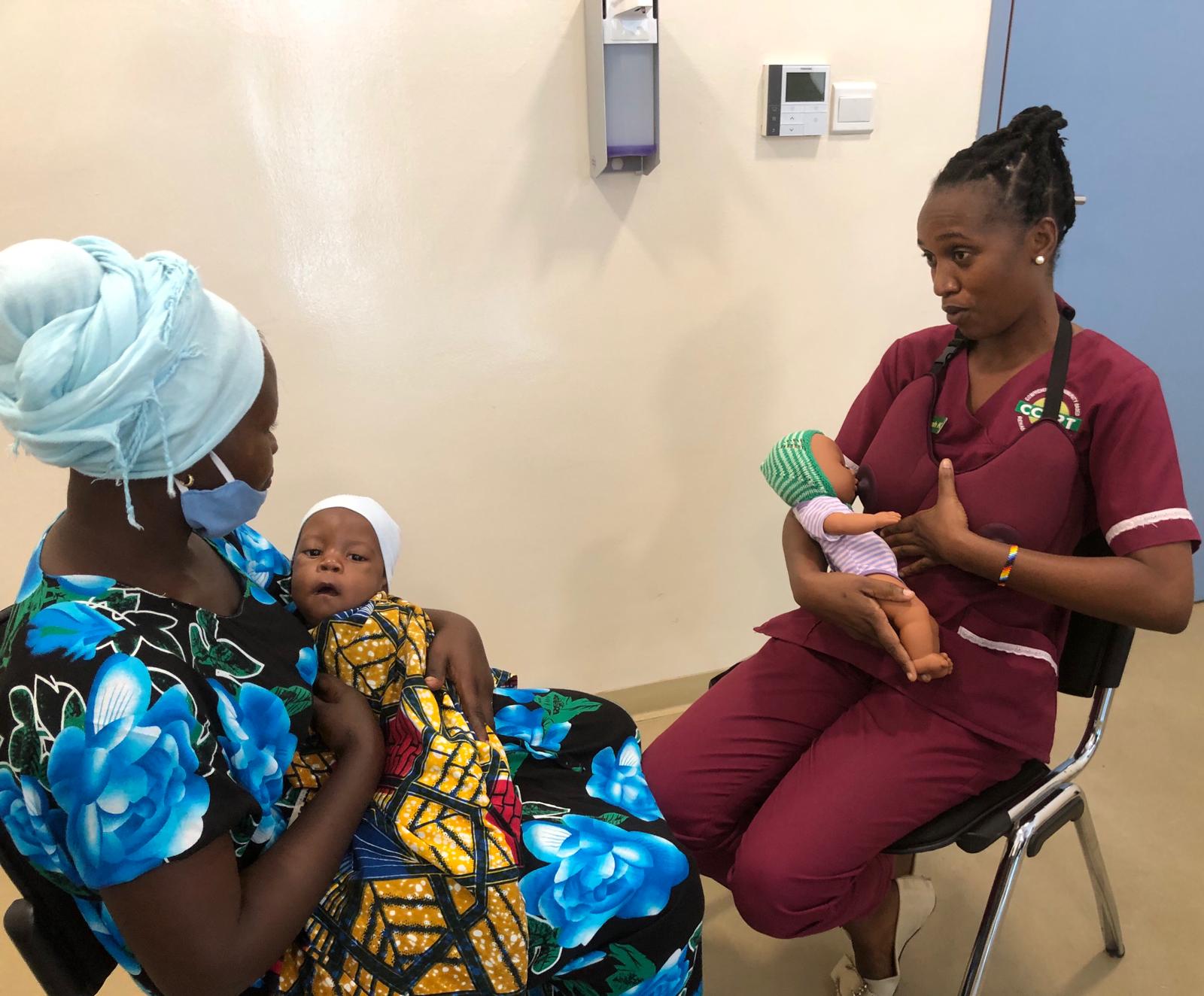Breast is Best
For World Breastfeeding Week (August 1st-7th), Kupona Foundation is highlighting the work CCBRT, our sister hospital, does to support mothers and newborns in Tanzania.
When the CCBRT team discovered the start of breastfeeding for sick and preterm newborns admitted to the neonatal care units of Dar es Salaam is often very delayed, CCBRT responded with a project (funded by Laerdal Foundation) on early and exclusive breastfeeding, emphasizing how vital this is for low birthweight or premature newborns.
Breast milk is the healthiest nutrition a newborn can get, and breastfeeding is the single most effective intervention to reduce neonatal mortality. It is absolutely critical that newborns receive all the benefits of breastmilk feeding as early as possible. Often vulnerable newborns, if premature or sick, are too weak to breastfeed. Mothers have to pump their breast milk so their newborn babies can drink by cup or tube feeding. These mothers and newborns need extra care and support.

Sarah, a nurse at CCBRT, shows the correct way of holding a baby during breastfeeding.
The most effective technique to pump breast milk has to be taught to mothers as it requires some practice. “Mama Breast” is a breastfeeding simulator developed by our partner, Laerdal Global Health, which enables nurses to demonstrate and teach these skills easily. A one-week breastfeeding counselling course is offered at the CCBRT Academy to nurses and midwives from our maternal health partner sites to facilitate such education to mothers everywhere they work.
Today in Tanzania, only half of all newborn babies receive breastfeeding within the first hour of life as recommended by the World Health Organization (WHO) and the rate of exclusive breastfeeding within the first 6 months is at 59% (UNICEF data: https://data.unicef.org/country/tza/). With over 80,000 deliveries supported by CCBRT every year, our goal is to ensure that these directly benefit but also many more; we want to support as many babies in Tanzania as possible get the healthiest start in life and that especially vulnerable newborns who are sick or born too soon get our extra care and support.

